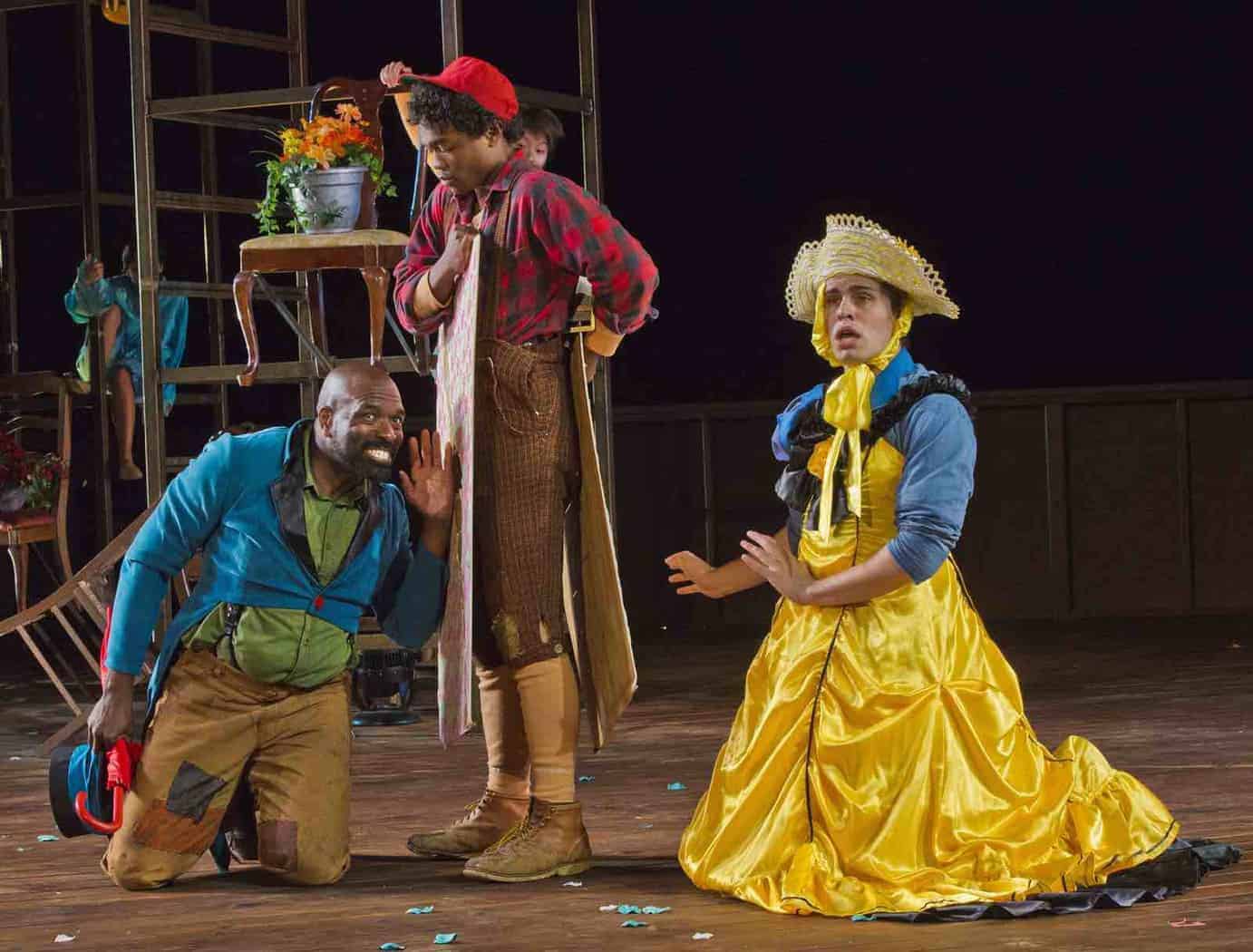Oft-overlooked, TIFF Short Cuts is the place to look for new talent, and among the Canadian shorts, particularly resonant national stories. For every amateurish or incomprehensible short, there’s one that will grab you and leave an indelible mark. At TIFF 2016, some of the strongest short films were made by or about Canada’s First Nations, many of which are must-sees for this year’s festival. To help narrow down your selections, here’s a list of ten must-see Canadian shorts.
* indicates films directed by women
1. Shahzad (dir. Haya Waseem*)
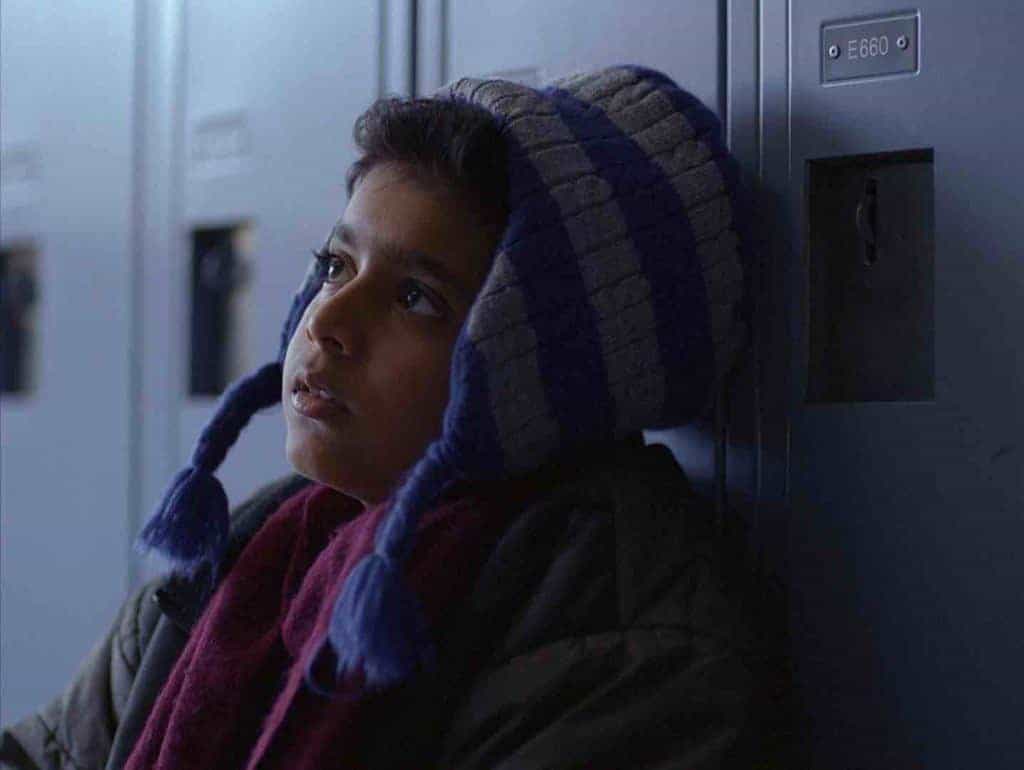
Haya Waseem’s Shahzad is a gorgeous, touching story of an 11-year-old Pakistani boy who has just moved to Toronto. Through a series of repeated rituals — nightly dinners with his father, daily antics at school — we see Shahzad finding his way and slowly assimilating: at their first dinner, Shahzad and his father both eat with their hands; before long, they have switched to cutlery. But Shazhad is also a celebration of the accepting Toronto culture: instead of being mocked by his classmates for being different, he’s welcomed into their multicultural group almost immediately.
Short Cuts Programme 5 9/11 7p.m. Scotiabank, 9/16 3p.m. Scotiabank
2. SNIP (dir. Terril Calder*)

Métis filmmaker Terril Calder has crafted a moving, dream-like tale in SNIP about reckoning with the violence inflicted on indigenous people at residential schools. Her gorgeous stop-motion animation film follows two present-day First Nations twentysomethings who find themselves transported to the past to save two others from the horrors that went on at their residential school. Heartbreaking and harrowing, Calder’s film is an important piece of Canadian history, which finds beautiful metaphors in the materials used to get at painful truths.
Short Cuts Programme 4 9/10 10 p.m. Scotiabank, 9/16 9:15 p.m., Scotiabank
3. HAND.LINE.COD. (dir. Justin Simms)
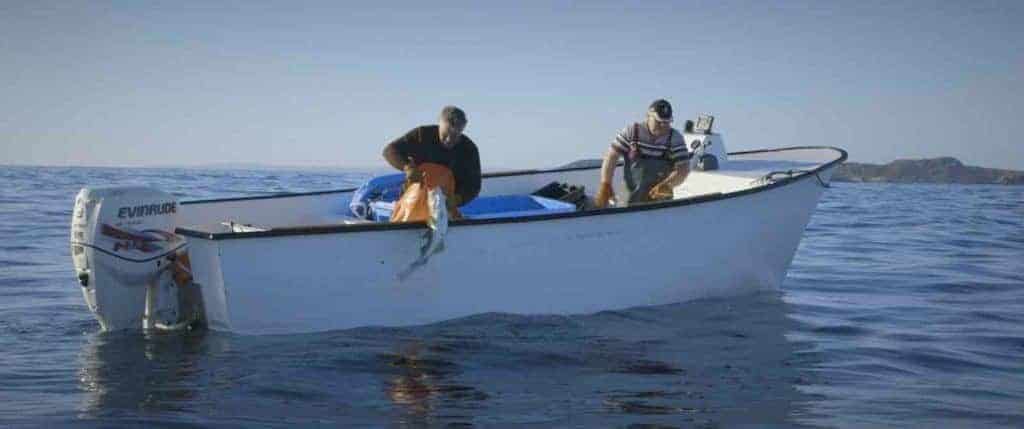
Justin Simms’ fascinating NFB doc follows traditional fishermen in Fogo Island, Newfoundland, where there’s a move to go back to catching Northern cod the way they 500 years ago: by hand, by hook and line, one at a time. It’s a move to sustainable fishing practices, but it also leads to much higher quality catches, because each is handled with care, raising the value of the fish.
Simms follows these fishermen in their gorgeous environs as they catch fish, prepare it for shipping, and finally, what the filets looks like when they reach restaurants in Toronto. Given the current food waste crisis, HAND. LINE. COD. is an important, timely doc that reinforces the notion that sustainable practices need not mean austerity practices: the quality is actually better.
Short Cuts Programme 10 9/14 7p.m. Scotiabank, 9/18 1:30 p.m. Scotiabank
4. Nothing about Moccasins (dir. Eden Malina Awashish*)
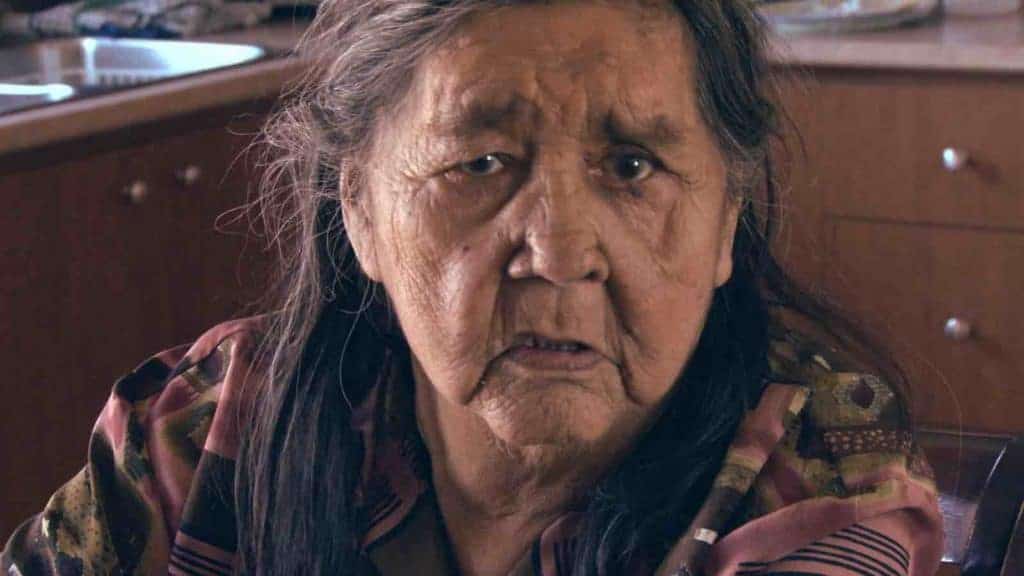
Following on the heels of the first feature-length Atikamekw film, Before the Streets, which premiered at Berlin earlier this year, Nothing About Moccasins wrestles with the difficulty of telling an indigenous story in a colonial medium. Director Eden Mallina Awashish wanted to tell a story about the importance of moccasins to her culture and her family, but along the way, she decides it would be more respectful to not reveal these traditions with the tools made by the people that tried to destroy her culture.
Short Cuts Programme 10 9/14 7p.m. Scotiabank, 9/18 1:30 p.m. Scotiabank
5. The Road to Webequie (dirs. Ryan Noth, Tess Girard*)

“You can’t eat scenery” was just as true in 1980s rural Scotland as it is for the Northern Ontario Webequie First Nation community. Located 500 km north of Thunder Bay with no roads to connect it to the rest of the country, this isolated community has an idyllic beauty but is plagued with endemic suicide, depression, and poverty. Plans to build a road to Webequie would bring economic development, but perhaps at the expense of preserving the culture and the landscape.
Directors Ryan Noth and Tess Girard interview the young people in the community about what they love about their home and the tragedies they’ve faced. Aerial photography captures the untouched, isolated beauty of the place. It’s a portrait of a community struggling for its survival when that very survival may mean a loss of what makes it unique.
Short Cuts Programme 9 9/13 9:30 p.m. Scotiabank 9/18 7:15 p.m. Scotiabank
6. Small Fry (dir. Eva Michon*)

Small Fry opens with a teenage girl getting picked up by her dad in a foreign country. They hug excitedly and get into the car, bonding over singing along to a tune. But their bliss is short-lived before she is reminded that her father has a new life and family that she has to fit into, and that he’s disconnected from the young woman she’s become. The symbolism toward the end is a bit heavy-handed, but it’s still emotionally affecting. Michon’s framing is exquisite, giving life to a film set almost entirely in the confines of the car, and getting us into the head of this young woman dealing with the end of her childhood.
Short Cuts Programme 9 9/13 9:30 p.m. Scotiabank 9/18 7:15 p.m. Scotiabank
7. Tshiuetin (dir. Caroline Monnet*)
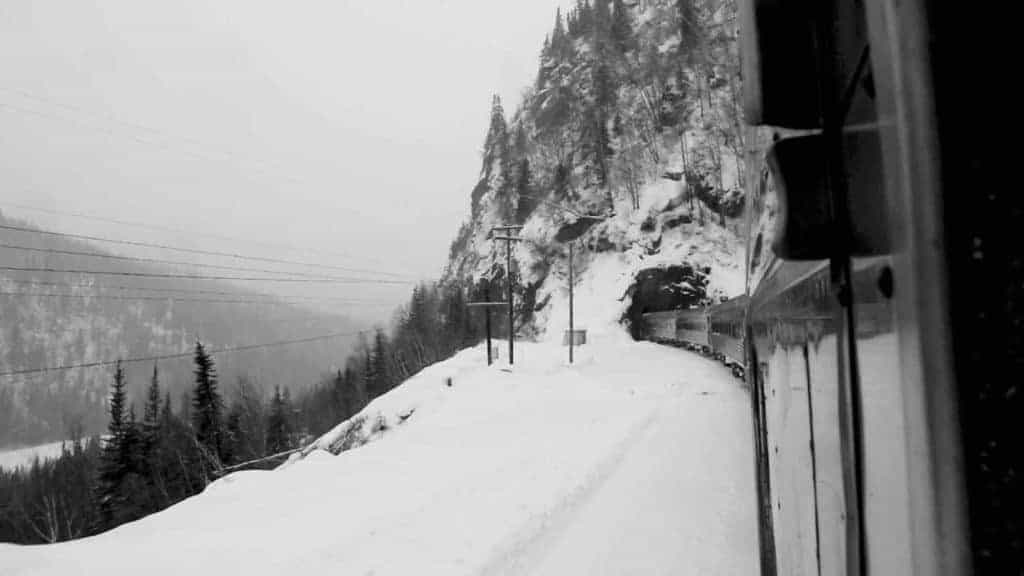
Shot in black and white, Caroline Monnet’s Tshiuetin takes us on the 12-hour train journey from Sept-ïles to Schefferville in Northern Quebec. The railway is owned by a group of First Nations, the first of its kind in Canadian history, and it connects remote First Nations communities to Southern Quebec where they go to buy groceries and other supplies. It’s a snapshot into a lesser known part of recent Canadian history, and the snowy sights along the journey are breathtaking.
Shorts Programme 1 9/8 8:15p.m. Scotiabank 1, 9/17 1p.m. Scotiabank 8
8. Emma (dir. Martin Edralin)
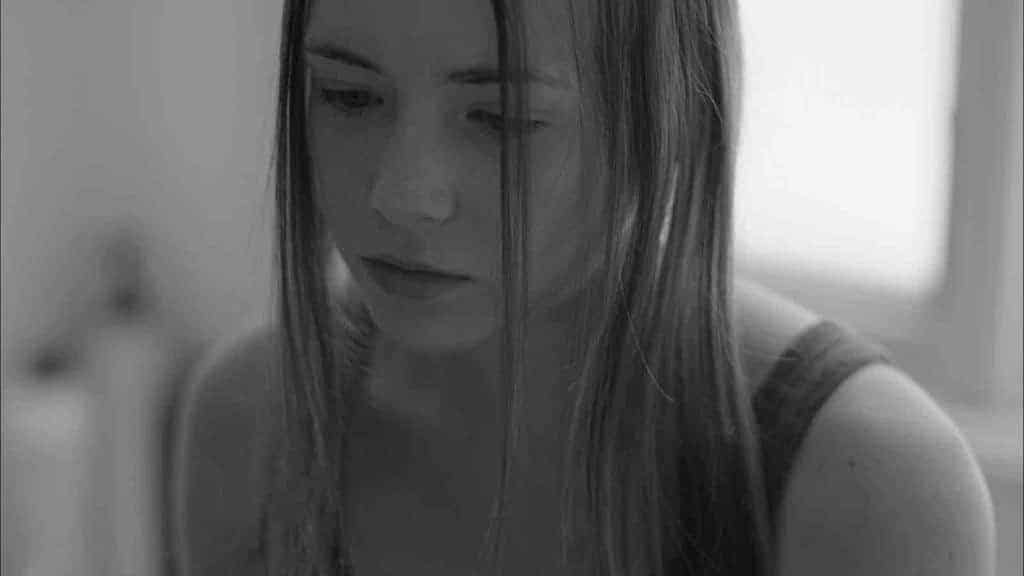
Toronto-based director Martin Edralin’s black-and-white short tells the story of 14-year-old Emma, who is quickly losing her hair to a disease called alopecia. Keeping us almost entirely in Emma’s perspective, Edralin shows just how hard it is for Emma to cope with this condition because of how it makes her different: the excuses she has to make, the work she has to do to hide the hair loss, and the rules that make it impossible to fit in. It’s a smart and sensitive film about the struggle to prevent an illness from defining us and just how much time and effort goes into managing it.
Short Cuts Programme 10 9/14 7p.m. Scotiabank, 9/18 1:30 p.m. Scotiabank
9. Gods Acre (dir. Kelton Stepanowich)
If the colonialists don’t kick you off your ancestral lands, climate change will eventually get you — caused, by and large, by the people now living on stolen land. Kelton Stepanowich’s Gods Acre can be a bit hokey, but its message is devastating. A pair of RCMP officers arrive at Frank’s (Lorne Cardinal) home on Cree Lands to inform him it’s no longer safe. He rebukes them, and they force him to sign a document saying the government is no longer responsible for his well being. A flood is coming, but he’s intent on holding his ground until the very last minute. We watch as he fights for his home and his life.
Short Cuts Programme 7 9/12 6:45 p.m. Scotiabank, 9/17 6:35 p.m. Scotiabank
10. The Smoke (dir. Rebecca Addelman*)

In The Smoke, a middle-aged woman heads back to her hometown for a Bat Mitzvah, an awkward family party that’s an exercise in torture. Addelman leverages wry humour to give a painfully accurate account of family reunions where you feel completely out of place. When the protagonist gets in the car with her family, we see her in medium shot, her relatives surrounding her with their backs to her, talking nonstop at her. She looks miserable. Addelman is particularly gifted at setting up a shot and finding meaning from the ways the actors move in and out of frame: a rarer and rarer skill these days heralding a great new talent to watch for.
